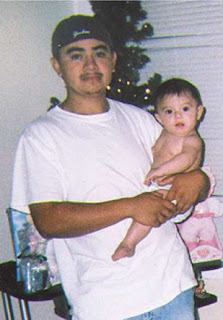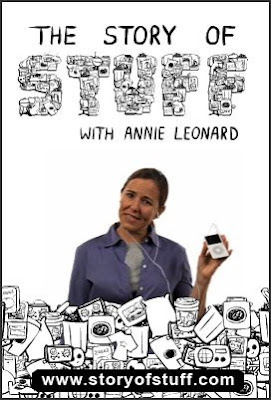The True Cost of Chevron: An Alternative Annual
by Antonia Juhasz, http://www.TrueCostofChevron.com/
May 26th, 2009
Chevron's 2008 annual report is a glossy celebration of the company's most profitable year in its history. What Chevron's annual report does not tell its shareholders is the true cost paid for those financial returns, or the global movement gaining voice and strength against Chevron's abuses. Thus, we, the communities and our allies who bear the consequences of Chevron’s oil and natural gas production, refineries, depots, pipelines, exploration, offshore drilling rigs, coal fields, chemical plants, political control, consumer abuse, false promises, and much more, have prepared an Alternative Annual Report for Chevron.
The 44-page report is available to download at www.TrueCostofChevron.com -- a visually stunning website using our ChevWrong “Inhumane Energy” ads that reveal the hypocrisy of Chevron’s human energy ad campaign. The report and the ads can be downloaded for free from the website, which also provides action steps, links to the organizations involved in the True Cost of Chevron campaign, and more. Hard copies of the report can also be ordered for a small fee from the website.
Chevron, Shell and the True Cost of Oil
by Amy Goodman
The economy is a shambles, unemployment is soaring, the auto industry is collapsing. But profits are higher than ever at oil companies Chevron and Shell. Yet across the globe, from the Ecuadorian jungle, to the Niger Delta in Nigeria, to the courtrooms and streets of New York and San Ramon, Calif., people are fighting back against the world's oil giants.
Shell and Chevron are in the spotlight this week, with shareholder meetings and a historic trial being held.
On May 13, the Nigerian military launched an assault on villages in that nation's oil-rich Niger Delta. Hundreds of civilians are feared killed in the attack. According to Amnesty International, a celebration in the delta village of Oporoza was attacked. An eyewitness told the organization: "I heard the sound of aircraft; I saw two military helicopters, shooting at the houses, at the palace, shooting at us. We had to run for safety into the forest. In the bush, I heard adults crying, so many mothers could not find their children; everybody ran for their life."
Shell is facing a lawsuit in U.S. federal court, Wiwa v. Shell, based on Shell's alleged collaboration with the Nigerian dictatorship in the 1990s in the violent suppression of the grass-roots movement of the Ogoni people of the Niger Delta. Shell exploits the oil riches there, causing displacement, pollution and deforestation. The suit also alleges that Shell helped suppress the Movement for the Survival of the Ogoni People and its charismatic leader, Ken Saro-Wiwa. Saro-Wiwa had been the writer of the most famous soap opera in Nigeria, but decided to throw his lot in with the Ogoni, whose land near the Niger Delta was crisscrossed with pipelines. The children of Ogoniland did not know a dark night, living beneath the flame-apartment-building-size gas flares that burned day and night, and that are illegal in the U.S.
I interviewed Saro-Wiwa in 1994. He told me: "The oil companies like military dictatorships, because basically they can cheat with these dictatorships. The dictatorships are brutal to people, and they can deny the human rights of individuals and of communities quite easily, without compunction." He added, "I am a marked man." Saro-Wiwa returned to Nigeria and was arrested by the military junta. On Nov. 10, 1995, after a kangaroo show trial, Saro-Wiwa was hanged with eight other Ogoni activists.
In 1998, I traveled to the Niger Delta with journalist Jeremy Scahill. A Chevron executive there told us that Chevron flew troops from Nigeria's notorious mobile police, the "kill ‘n' go," in a Chevron company helicopter to an oil barge that had been occupied by nonviolent protesters. Two protesters were killed, and many more were arrested and tortured.
Oronto Douglas, one of Saro-Wiwa's lawyers, told us: "It is very clear that Chevron, just like Shell, uses the military to protect its oil activities. They drill and they kill."
Chevron is the second-largest stakeholder (after French oil company Total) of the Yadana natural gas field and pipeline project, based in Burma (which the military junta renamed Myanmar). The pipeline provides the single largest source of income to the military junta, amounting to close to $1 billion in 2007. Nobel Peace Prize laureate Aung San Suu Kyi, popularly elected the leader of Burma in 1990, has been under house arrest for 14 of the past 20 years, and is standing trial again this week. [On Tuesday the government said it had ended the house arrest of Suu Kyi, but she remains in detention pending the outcome of the trial.] The U.S. government has barred U.S. companies from investing in Burma since 1997, but Chevron has a waiver, inherited when it acquired the oil company Unocal.
Chevron's litany of similar abuses, from the Philippines to Kazakhstan, Chad-Cameroon, Iraq, Ecuador and Angola and across the U.S. and Canada, is detailed in an "alternative annual report" prepared by a consortium of nongovernmental organizations and is being distributed to Chevron shareholders at this week's annual meeting, and to the public at TrueCostofChevron.com.
Chevron is being investigated by New York State Attorney General Andrew Cuomo about whether the company was "accurate and complete" in describing potential legal liabilities. It enjoys, though, a long tradition of hiring politically powerful people. Condoleezza Rice was a longtime director of the company (there was even a supertanker named after her), and the recently hired general counsel is none other than disgraced Pentagon lawyer William J. Haynes, who advocated for "harsh interrogation techniques," including waterboarding. Gen. James L. Jones, President Barack Obama's national security adviser, sat on the Chevron board of directors for most of 2008, until he received his high-level White House appointment.
Saro-Wiwa said before he died, "We are going to demand our rights peacefully, nonviolently, and we shall win." A global grass-roots movement is growing to do just that.
Denis Moynihan contributed research to this column.
© 2009 Amy Goodman




















